Alan Charles Wilder was born in Hammersmith, West London – under the glow of QPR’s floodlights – on 1st June 1959, the youngest of three brothers. Surrounded by a passion for all things musical (something commonplace in the Wilder family), it was inevitable that he be encouraged to follow in their footsteps and take up the piano.
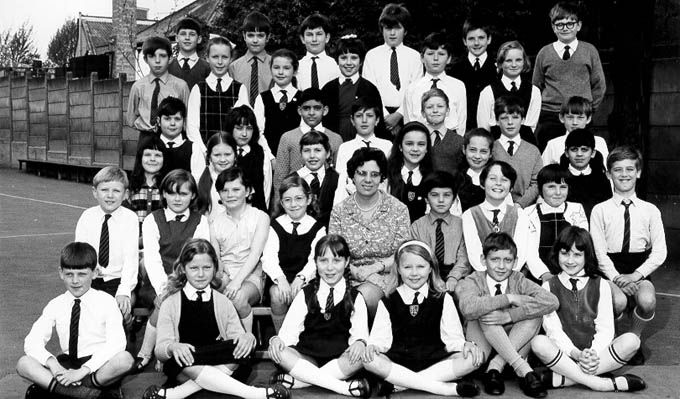
By the time he graduated to St. Clement Danes Grammar School at the age of 11, he was already way ahead of his music class (having added the flute as a second instrument) and soon became a leading member of his School Orchestra and 4-school Brass Band.
He continued to study the piano independently until his interest in Bach and Beethoven was being replaced by Bowie and Bolan, and his desire to play in the orchestra was tempered in favour of a yearning for less innocent pastimes. By 1975, at the age of 16 (following moderate ‘O’ level success), a return to St. Clement Danes to study for his ‘A’ Levels didn’t appeal and after just one more term, he opted out, applied to every recording studio in London and eventually secured the position of Tape Op. (studio assistant) at DJM Studios in the West End.
Alan reflects “I was great at the more musical aspects of studio work such as tape editing, drop-ins etc, but useless when it came to the patch bay or routing the mic lines through to the tape sends.”
As DJM housed its own record label, Alan found himself engineering on in-house productions as well as working with outside artists and it wasn’t long before his keyboard skills were being sought after for session work. Inevitably, this demand for his services and his desire for a more creative role, would lead him away from his current position and he remained with DJM Studios for just one year before moving to Bristol to join one of their bands, The Dragons.
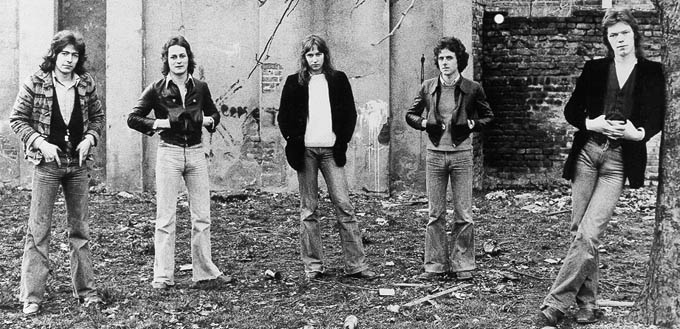
The Dragons released a single ‘Misbehavin’ through DJM Records but after a frustrating lack of success and, more importantly, money, the group folded when the record deal eventually ran its course.
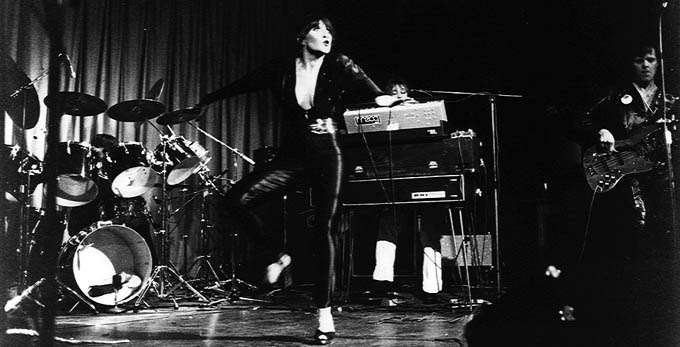
Together with fellow Dragons bassist Jo Burt, Alan returned to London some 6 months later under his pseudonym ‘Alan Normal’ – a necessity in the anarchic days of punk – to join newly-formed group Dafne and the Tenderspots. Though originally playing the restaurant circuit, the band unscrupulously manipulated its style from dinner lounge schlock to ‘new wave’, thus securing a deal with MAM Records.
“There are all sorts of influences at work in the music and lyrically they have the same cynical / satirical outlook on modern times as Joe Jackson or mid-period Kinks…’To Be A Star’ featured an insistent keyboard riff from Zebra-crossing-jacketed Alan Normal – one of the nucleus of the band. Duffy is backed by an invisible drummer, a synthesizer twiddler, a smug guitarist and the bass player from Burlesque…” Quoted from various sources
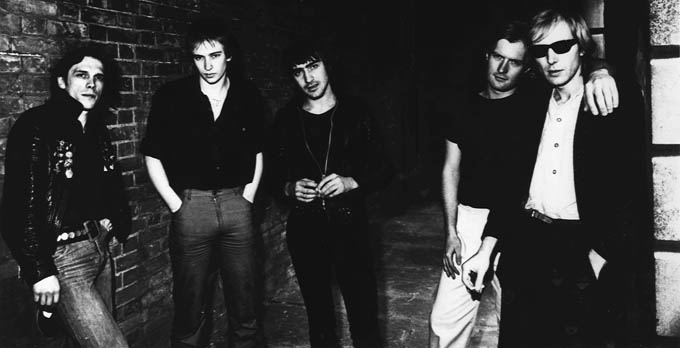
After releasing ‘Disco Hell’ in 1979 to a tepid response, the Tenderspots fell foul of a disinterested public and a lack of funds, leaving Alan to move on to his next group, Real to Real. Signed to Red Shadow Records, they released several singles and an album entitled ‘Tightrope Walker’.
Despite moderate success, Real to Real eventually suffered a similar fate to Alan’s previous bands and he moved on to pastures new, playing keyboards with established but somewhat staid CBS group The Hitmen (whose lead singer, Ben Watkins, later went on to form Juno Reactor, a one-time Mute act).
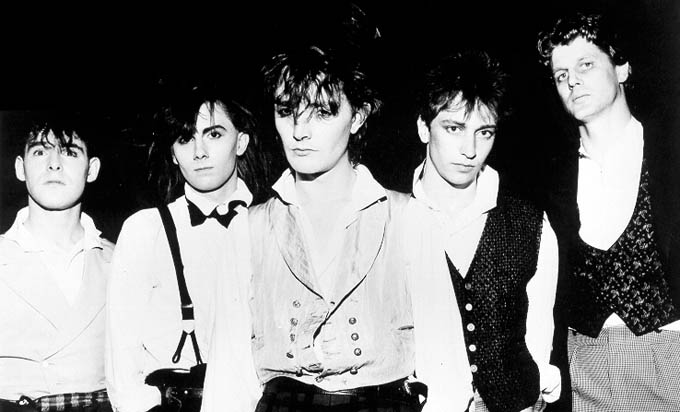
“In the search for a new disguise for dull and repetitive music, The Hitmen have hit on a look which brings together shabby, top hats, raggedy scarves and the demeanour of a jaunty starveling recently discharged from the debtor’s prison.
Lead singer Ben Watkins devised what’s known as his ‘street urchin’ look… Unfortunately there appears to have been a slight confusion over the new image, with the band’s publicity proclaiming them ‘nabobs of throb’ and ‘fakirs of funk’ with a long tradition of ‘dance macabre’, jealousy and grave robbing which seems a strange mix of images.” The Hitmen: ‘Ouija’ (CBS)
![]()
“Rubbish. I’m running out of patience with this sort of well-crafted, terribly professional pop. Pop? It’s not worthy of the name. Only this job could ever induce me to listen to it. The winning thing about the Depeche Mode single (and their last, and Soft Cell’s) is its simple enthusiasm, its complete lack of cynicism. The Hitmen are so calculating – even down to the clever, clever name – it’s unbearable; the only remotely comforting thing about all this is that they haven’t a dog’s chance of ever getting a hit.” Quoted from unidentified source
![]()
Well, perhaps a minor hit with ‘Bates Motel’, but not enough for a band who were on the rocks, and so it wasn’t long before Alan was again hunting for work. However, this all too familiar cycle was about to change……
NEW LIFE
In 1981 Alan responded to an advert in Melody Maker requesting: “Synth / Vocals needed for electronic pop group with UK & International commitments – must be under 21.” After an initial meeting with Daniel Miller, head of Mute Records, he was invited to an audition at Blackwing studios. It was here that he was introduced to Depeche Mode; 3 school friends from Basildon, Essex, who had tasted early success with their first album ‘Speak And Spell’ together with recently departed member Vince Clarke, their chief songwriter.
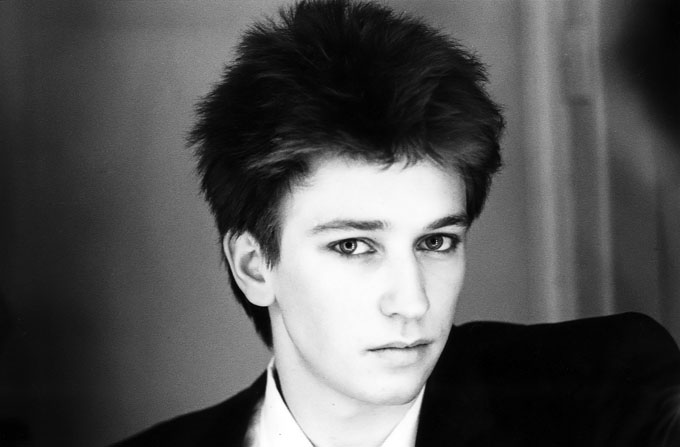
Alan was required to demonstrate his skills playing along to one of their recent hits ‘New Life’ amongst others, and although he impressed the band, Daniel remained unconvinced. After some debate and a second audition, the group eventually got their way and he was invited to join Depeche Mode, initially on a part-time basis.
Says Wilder “They clearly needed a replacement for Vince with a tour and other commitments on the horizon and his departure had come at an unexpected time after their early success. There was a lot of caution about me however. They resented Vince at that time for leaving and felt they needed to prove to him that they could carry on regardless. It was a question of pride I think, and they also didn’t want to be seen as jumping into the ‘transfer market’ to buy in a ready-made replacement.”
Thrown in at the deep end, Alan’s first duties included a live tour in the US along with a heavy schedule of TV, press and promotion in conjunction with the latest releases ‘See You’ and ‘Meaning Of Love’.
During the summer of 1982, Martin Gore, David Gahan and Andrew Fletcher locked themselves away in Blackwing studios without Alan to prove their point to Vince, and made their second album ‘A Broken Frame’.
Depeche Mode played a massive part in establishing Mute Records as one of the most successful and respected independent record companies in England and the relationship between the group and Daniel Miller was crucial to this. Over the next year, Daniel began to form a much closer link with Alan. He had released the very first record on Mute, ‘T.V.O.D.’, under the guise The Normal which embodied his interest in early German, largely experimental synthesizer music (Kraftwerk, DAF, Tangerine Dream etc.). Alan came from a very different, more musical angle and yet the two found a compatibility and, more importantly, a common interest in their approach to the Depeche sound.
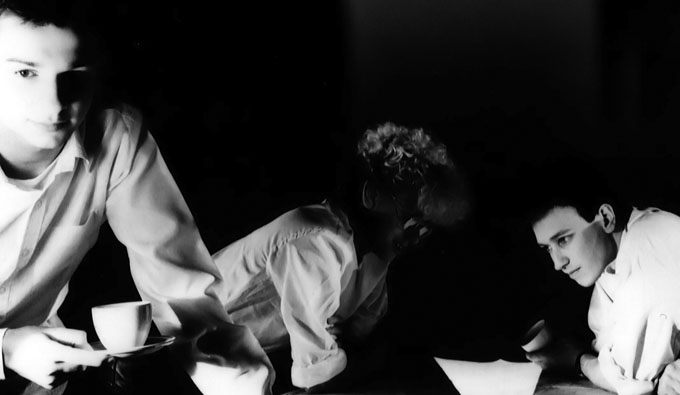
Together with Gareth Jones, Daniel and Alan’s involvement in the production of the next album ‘Construction Time Again’ in 1983 saw the sound of the group take a giant leap forward. Alan also contributed some of his own songs as well as extra B-sides, although he would later admit that he felt obliged to participate in the songwriting process despite the fact that it didn’t come naturally to him. His strength lay in the placement of sounds and the structuring of the music and his upbringing and exposure to classical orchestration was most certainly a factor in this.
As well as the introduction of samplers, one of the most noticeable changes to the Depeche sound at this time was a move away from its pure pop beginnings towards a darker realisation. Having taken over the job of songwriting after Vince Clarke’s departure, Martin was developing his own lyrical style and gaining in confidence. Coupled with psuedo-religious themes of guilt and redemption, he began to flirt with sexual androgyny whilst Alan capitalised on these ambiguities, seizing his opportunity to initiate what had long been his desire for a more mature, multi-dimentional sound.
This was clearly demonstrated in the next album, ‘Some Great Reward’ released in 1984, that spawned a number of hits including the subversive ‘Master And Servant’ and ‘Blasphemous Rumours’. Spurred on by condemnation from religious groups, the band were also gaining a reputation for being a ‘rock ‘n’ roll’ band in the truest sense of the term.
In the climate of the more politically and morally accepting ’80s, the darker side of life that had once been confined to the seedy underground world of porn theatres and gay clubs, was rising to the surface and becoming new territory to exploit. Nowhere was this more obvious than in the US, where a once daring music scene seemed to have come to a complete standstill and was being strangled by soft rock and ‘disco hell’.
Depeche Mode bore all the trademarks of this new musical exploitation, uncannily displaying just what the all-American, white middle classes seemed to be searching for. Here was a band that was clean cut enough to cross over but who weren’t afraid to emit a provocatively sexual aura.
Black Celebration
1986’s ‘Black Celebration’ with its dark and cynical invitation “Let’s have a black celebration….to celebrate the fact that we’ve seen the back of another black day” saw the group’s popularity grow in Europe and in America..
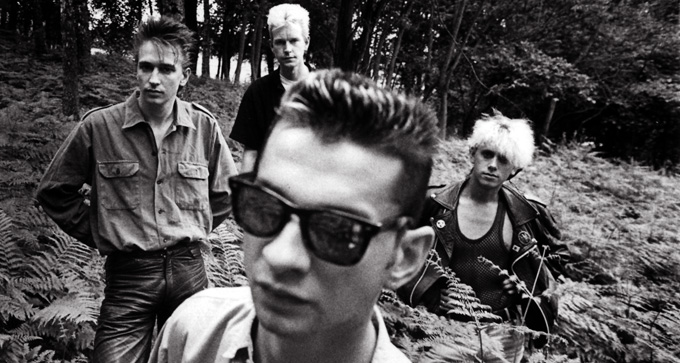
By comparison, the English press seemed steadfast in its refusal to forgive Depeche Mode for ‘Just Can’t Get Enough’ and their New Romantic associations. In spite of numerous past hits, current success with ‘Stripped’ and the promise of many to come, they continued to play the band and their music down.
For example, despite being at least as successful as their contemporaries, such as Duran Duran and Spandau Ballet, the Mode were not invited to events like Bob Geldof’s Live Aid concert and the Band Aid single ‘Do They Know It’s Christmas’ which featured all the major musicians of the time.
Ironically however, this was to be to Depeche Mode’s advantage. By staying out of the limelight and refusing to court the vultures of the press, they were building a fan-base as belligerent as themselves, who would remain faithful to the death.
THE RECOIL LINE
Alan had always experimented with his own individual ideas (alongside his rather higher profile as the now acknowledged musical formulator of Depeche Mode) but it wasn’t until Dan Miller heard some of his demos (recorded on a 4-track cassette machine) and asked him to reproduce them, that the reality of Recoil as a solo project came to light. The early Recoil recordings revealed Alan’s position as a pioneer in the newly emerging world of sampling technology and demonstrated how he could turn the Depeche sound around to create something entirely new.
Simply entitled ‘1 + 2’, his first collection of primitive demos, though completed in the early ’80s, was inconspicuously released as a mini-album in the summer of 1986, alongside Depeche Mode’s top five album, ‘Black Celebration’.

“‘1 + 2’ is completely synthesizer based yet bears no resemblance to the pretty pop ponderings of the group. Mostly of an instrumental nature, some of it pulsates in the traditional sense but serves mainly as ambience. It is nice to see D. Mode’s members branch out into serious musical ventures rather than take the easy route of producing merely bubble gum pabulum.” Dance music report
In 1987, Depeche Mode recruited the unique skills of Dutch photographer Anton Corbijn to further enhance their by now familiar style. He directed promos for the next release ‘Music For The Masses’ helping to tie together the whole phenomenon that was becoming Depeche Mode and thus providing the focus for a massive world tour.
This was to prove a turning point in the band’s career, epitomised by a sell-out show to 80,000 people at The Rosebowl stadium in LA. Featuring hits from the ‘MFTM’ album such as ‘Behind The Wheel’, ‘Never Let Me Down’ and ‘Strangelove’, it was decided that D.A. Pennebaker would film the US leg of the tour together with a group of competition winners that would attach themselves along for the ride.
The culmination of an extremely busy year for Alan was a return to the studio to complete the live recordings that would eventually materialise as the top five album ‘101’ and, together with the completed ‘101’ film, take Depeche Mode another step closer to world domination.
Unfortunately for the fledgling Recoil, the release in January 1988 of Alan’s second album, ‘Hydrology’, clashed with this tour and the enormous popularity of the band restricted him from promoting his own work. A more ambitious follow up to ‘1+2’, ‘Hydrology’ was still a far cry from the commercial pop sound of his day job. It remained entirely instrumental, having been recorded on a fairly modest set-up, and was obviously intended to be different. Wilder described the project at this stage as “an antidote to Depeche Mode in some ways; a way to alleviate the frustrations of always working within a pop format.”
“Recoil’s secretive persona and luscious style make for something that’s at once grandiose and classically appealing while retaining a certain individual eclecticism. That this mystery personality has reaped found sounds such as native villages, introduced a keyboard verve and supplemented the proceedings with great mounds of rhythm when necessary, suggest that they are accomplished craftsmen and world-wise tunesmiths. ‘Hydrology’ is a seamless shroud for modern music, a mock symphony for a mixed up generation and an essentially moving collection of sketches.” Underground Magazine
Violator
Almost immediately, Alan found himself back in the studio to record what would become the most successful Depeche Mode album to date, ‘Violator’. After its release in 1990, a promo tour to publicise the upcoming live shows demonstrated Depeche Mode’s massive appeal when a predicted few hundred fans turned into approximately 15,000 who crammed themselves into Wherehouse Records in Los Angeles to see their heroes sign copies of the new record.
The mass of people was too great, the windows imploded and a riot spilled out onto the streets. As frightening and physically destructive as this was, the event caused exactly the attention that Depeche needed. ‘Violator’ spawned a string of hits all over the world including ‘Personal Jesus’, ‘Enjoy The Silence’, ‘Policy Of Truth’ and ‘World In My Eyes’, and saw the band rise officially to the level of stadium superstars.

It wasn’t until Depeche Mode finally allowed themselves an extended break after the enormously successful ‘World Violation’ tour that Alan could return to Recoil. However, after starting work on a 3rd album, he agreed to produce another for label mates Nitzer Ebb, who had supported the Mode on their previous two tours and had become good friends.
‘Ebbhead’ was recorded at Konk Studios and Alan enlisted the help of Flood who had worked on ‘Violator’. It was during this time he cemented both a good personal and working relationship with lead singer Douglas McCarthy who would return the favour by singing on Recoil’s next album, ‘Bloodline’.
For this LP, released in 1991, Wilder recruited guest vocalists for the first time with further contributions (as well as Douglas) from Moby and Toni Halliday helping to produce an album that was a significant move forward for Recoil. It also marked the first Recoil single, a cover of an Alex Harvey track, ‘Faith Healer’.
“‘Bloodline’ indicates that Alan Wilder has been a key figure in Depeche Mode’s development, from their early pop nursery rhymes to the darker, heavily textured style they adopted in the mid-80’s. Wilder concocts the filmic soundscapes, slow burning things that slip into melodramatic grandeur through a side door.
Douglas McCarthy blisters Alex Harvey’s ‘Faith Healer’, Curve’s Toni Halliday drenches ‘Edge To Life’ and ‘Bloodline’ in drowsy paranoia. ‘Electro Blues For Bukka White’ has long-gone disembodied bluesman White, muttering and wailing underneath an eastern drone that both eulogises and ignores him. Like the rest of ‘Bloodline’, the effect is disconcerting but ultimately very moving.” Vox
Songs Of Faith And Devotion
Between 1992-93, Wilder reassumed his Depeche duties as the band recorded the album, ‘Songs Of Faith And Devotion’. Released to universal acclaim, it topped the charts in the UK, USA, Germany and a host of other countries. Enjoying hits with ‘I Feel You’, ‘Walking In My Shoes’, ‘In Your Room’ and ‘Condemnation’, Depeche Mode embarked on their most adventurous tour to date, enduring a gruelling 15 months on the road.
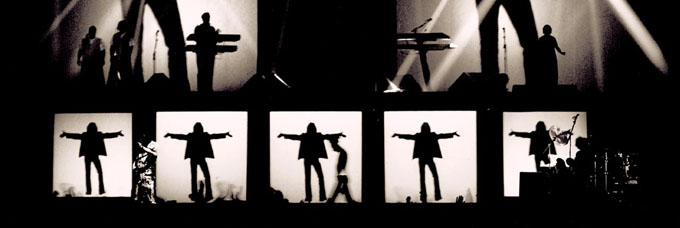
Accompanied by a 7 screen film show from Anton Corbijn and the addition of two gospel singers, as well as live drums for the first time (played by Alan), the ‘Devotional’ tour saw Depeche Mode in full flow – at their best….and worst.
Although the group had reached the pinnacle of success (and, indeed, revelled in the trappings of it), aspects of such an excessive lifestyle had taken their toll on everyone and things eventually came to a head. For Alan, the thought of recording another album and tour was too much to contemplate and he began to think about moving on.
In June 1995, having spent 14 years as an integral part of one of the most popular and influential bands the UK has ever produced, Alan made the difficult but inevitable decision to leave Depeche Mode and spent the rest of the year taking a well deserved break.
UNSOUND METHODS
Free from his group commitments and after the birth of his first child, Paris, in 1995, his personal life was at last on a much needed even keel. He could now begin to focus solely on Recoil and in September 1996, he began work in his own studio, The Thin Line, gradually piecing together the unnerving scores that would eventually become ‘Unsound Methods’ before again, drawing collaborators into his net of intrigue. The final results were more impressive than ever.
The music that began to emerge seemed to be a far cry from his last Recoil offering but appeared to take up where ‘Songs Of Faith And Devotion’ had left off. Unlike the textural vocal style of ‘Bloodline’, guest vocalists this time played a more up-front role than ever and featured Maggie Estep (a spoken-word artist from New York), Siobhan Lynch (who came to Recoil by way of a demo cassette), the reappearance of Douglas McCarthy, and Hildia Cambell (who had worked with Alan as a backing vocalist on the ‘Devotional’ tour). The styles of each could not be more removed from one another helping to create a startlingly original and diverse collection.
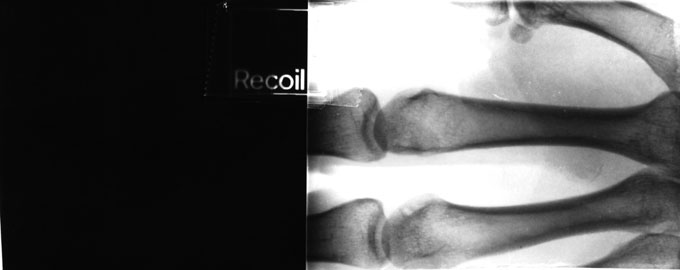
Working in this unique way afforded Alan Wilder far greater freedom of expression allowing him unrestricted access to all his favourite musical areas. During the nine haunting and sultry tracks that comprise ‘Unsound Methods’ the listener is drawn into the shadowy world of a new Recoil for the ’90s.
Released in the autumn of 1997, the album, though perceived as difficult by some, received much critical acclaim and was welcomed by the more adventurous spectrum of the music world…
“A generous, instinctively filmic collaborator, Wilder provides impeccable canvasses – all mournful cellos and thoroughly paralysed beats…. ‘Unsound Methods’ is in exquisite taste. You might have seen the cut before, but then again, it doesn’t look this drop-dead stylish on everyone.” Time out – November 1997
“The concept project of former Depeche Mode producer Alan Wilder removes itself from the music industry norms and blinkers, supplying a confrontational and emotive symphony. Immediately astounding in its ambition, Alan uses the whole sonic vocabulary of jazz, trance, gospel, classical, ambient, thrash, poetry and natural sound effects, conducting these into a theatrical / cinematic narrative. This release stands out as an accomplished and musical experience with the depth of Radiohead and drama of David Lynch: the album echoes far past its conclusion.” Massive – December 1997
LIQUID
Released in the Spring of 2000, ‘Liquid’ has been described as the most fervent and unsettling album to date. Once again, Wilder utilised the unique qualities of various guest vocalists – internationally acclaimed fellow Mute artist Diamanda Galás, 1940s Gospel crooners The Golden Gate Jubilee Quartet, New York spoken-word performers Nicole Blackman and Samantha Coerbell, Catalan narrator Rosa Torras, and additional musicians Steven Monty (drums), Dean Garcia (bass) and Merlin Rhys-Jones (guitar).

The worldwide music press received ‘Liquid’ with a host of glowing reviews and Wilder was awarded the Charles Cros Grand Prix 2000.
“…a series of poetic vignettes brought to vivid life through ambitiously expressionist musical settings, ‘Liquid’ offers a wealth of dark and disturbing pleasures. Uneasy listening for uneasy souls.” Andy Gill – The Independent (Album of the week) – April 2000
“The music on ‘Liquid’ is suitably grand and gothic, filled with the kind of carefully constructed, emotionally unsettling textures that once bedrocked many a Depeche Mode album track: fascinating and rewarding but a far cry from pop music. Wilder is likely heading for a second career of cult sales, critical acclaim and being in demand to produce and compose for others, and he is seemingly quite comfortable with forgoing platinum albums and screaming fans to do so. With works this intriguing and provocative, we should be content with his decision, too.” Tony Fletcher – Sonicnet – April 2000
Strangely enthralling and genuinely unhinging, ‘Liquid’ masquerades as the aural equivalent of a disturbing movie. Its intoxicating soundscapes kick up clouds of the same dark dust that falls on David Lynch or Nine Inch Nails, but where others may hammer out their message with histrionic force, Alan’s touch is lighter and characteristically more subtle. ‘Liquid’ is designed to seep into your brain and drill holes into your psyche – a remarkable work for not-so-quiet reflection in the company of one’s darker side.
After ‘Liquid’, Alan decided to take a break from the pressures of the music business and spend more time concentrating on his young family. In February 2001, his second child Stanley was born and months confined to the studio was neither an enticing nor realistic option. “I was adamant that I did not want to bring children into the world and then be an absent father by spending months on the road or in the studio. It was important for me to be there to witness my child’s development, especially as I’d worked consistently for many years and was lucky enough to have the financial security to be able to enjoy life’s pleasures.”
SUBHUMAN
After a well deserved rest, he returned to the studio in January 2006 and set to work on a new album. ‘subHuman’ was released by Mute on July 9th, 2007. Collaborating this time was Blues-man Joe Richardson, whose evocative vocal style is complimented by accomplished guitar and harmonica performances. Born in Southern Louisiana, Richardson spent years immersed in the murkier side of New Orleans life and offered a unique commentary on conflict, religion, incarceration and personal struggle. English singer Carla Trevaskis, a songwriter in her own right, also brought an expressive range and control to the album.
Says Wilder: “We seem to have learnt nothing from past experiences and our so called ‘civilised’ world is still awash with personal and global atrocities. From suicide bombings in the Middle East, to ethnic cleansing in the Balkans; from the homophobic rhetoric of the Christian fundamentalist preacher, to the activities of Western governments engaged in their ‘war on terror’”.
‘subHuman’ asked us to reach within ourselves and extract the very essence of what makes us human – and more importantly what allows us to subordinate others, sometimes with the most brutal consequences. “We are all ‘subhuman’ in somebody’s eyes.”
In 2008, Alan & his wife of 13 years Hepzibah decided to go their separate ways. He eventually met his current partner Britt Hväl and, in November 2011, his third (her first) child Clara was born.
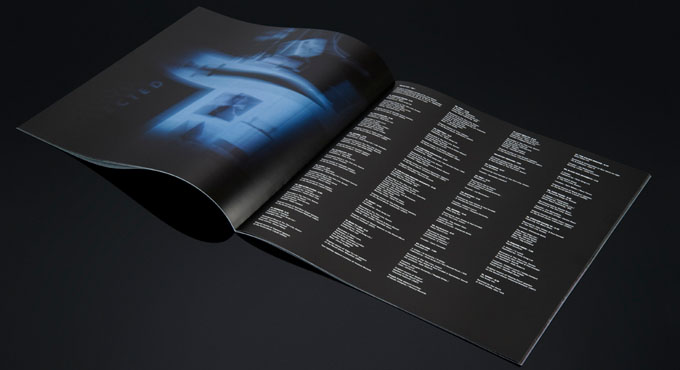
In 2010, Recoil returned to give us ‘Selected’, a selection of classic Recoil tracks with the listing chosen by Alan who explains: “The collection is made up of my personal favourites, remastered and edited together into what I consider a cohesive and total listening experience.”
A STRANGE HOUR
‘A Strange Hour’ was presented – with Paul Kendall in tow – during 2010 & 2011 in 52 cities across the world, as part of the ‘Selected Events’ tour to celebrate 25 years of the project, signifying the first time Recoil had ever taken to the road. The events were not so much ‘live’ band but more art installation. The music was comprised of stripped down, edited sections from many Recoil remixes and alternative versions, combined so that what resulted was recognisably Recoil but not necessarily what you would hear on the studio versions.
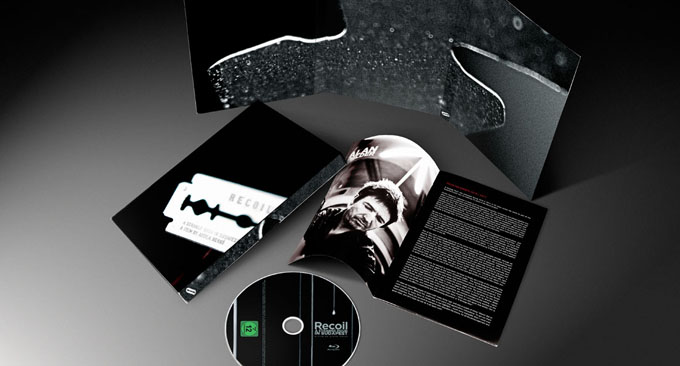
Alan gathered together filmmakers from as far as Russia, via the Czech Republic and Hungary, all the way to Argentina for this purpose, working very fast, and in the modern way, by creating a central server where everybody could upload their work for others to see, react to and feedback on. “This for me typifies the whole essence of what Recoil is all about – a collective but with a focused direction – and a very thrilling process it was too, watching and hearing ’A Strange Hour’ come together from our base in the UK.”
Following his remix of ‘In Chains’ for his old Depeche Mode bandmates in 2011, Recoil returned in 2012 to release the concert film ‘A Strange Hour In Budapest’ on Blu-ray. With 5.1 surround sound, the performance was filmed using the latest high-definition technology in order to capture the event in its full glory. For this, the team from Umatik Entertainment was recruited, headed up by director Attila Herkó. The results were stunning and offered a captivating and exhilarating document of ‘A Strange Hour’.
Also in 2012, we saw Alan Wilder turn up again as Executive Producer & contributor for a new tribute album to Mark Hollis & Talk Talk. Recoil offered two cover versions for the album utilising the vocal talents of Linton Kwesi Johnson, Shara Worden and Paul Marshall. Wilder also mixed a track for Richard Reed Parry from Arcade Fire. ‘Spirit of Talk Talk’ was released in September 2012 on Fierce Panda Records.
Things have been quiet in Recoil’s world since then – with new daughter Clara taking centre stage – but Alan did show up recently to perform on a single by a young and aspiring new artist, Dede, entitled ‘Calling The Clock’. It was released via Smile Records on November 18th 2016.
He met Dede (full name Dédé Davi) when his old mucker from DM days, Daryl Bamonte, got in touch:
“Dédé sent over her demo of ‘Calling The Clock’ after Daryl asked if I would oversee a studio recording and arrange & perform the piano part for the final version. I was happy to oblidge. The simplicity and directness of Dédé’s words along with a strong melody left plenty of room to come up with the arrangement – hopefully one which compliments those things without becoming overbearing, allowing the strength of the song itself to shine through. With limited hours in the studio, an immediate focus was required to get the right piano & vocal performances. For me, a little old-school having got so used to utilising all kinds of digital tools and electronic equipment with my own recorded music. The whole experience was refreshing & rewarding and I wish Dédé all the luck in the world with her career.”
To be continued…

